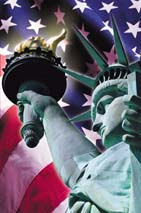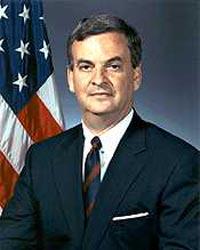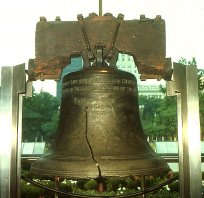Introduction:The May 26 issue of the Chronicle of Higher Education has an article by David Fontana on the insular nature of American law schools. It's interesting that this is still the case--we've all heard a lot of talk about the "global law school" and the "globalization of the legal profession." More form than substance?
American Law Schools, Meet the World
By DAVID FONTANA
It's long been a truism that the relationship of American law schools with the universities that sponsor them is more like a friendship with a stimulating colleague than an interaction with a boss. As with a colleague, the law school turns to the university for new ideas and enjoyable dialogue; unlike with a boss, the law school often chooses not to follow what the university says.
What has been less remarked, though, is how that tendency to go one's own way is especially marked in the way law schools relate to the world beyond American borders — in marked contrast to how the rest of the university does. While the rest of the American campus has welcomed perspectives from beyond our borders, the law school has been less interested.
Continued here: Some deans and professors are pushing to change that, but reform is by no means widespread. That is a shame. Law schools, at their core, educate students to face the world as talented and trained legal minds and today's world is a globalized one.
Why do law schools diverge so much from the rest of the university? Starting in the 1960s, colleges gradually began to respond to the massive expansion and diversification of their student bodies in two ways: by questioning universal theories of truth and fact, and by bringing in a greater variety of perspectives, both domestic and international. But American law schools have primarily questioned universal theories. While they have included welcome new perspectives, those have been almost solely American.
Law schools have questioned whether the law is a series of objectively discernible, purely logically based principles — what Justice Oliver Wendell Holmes once mockingly called the "brooding omnipresence in the sky." And, like campus central, they have looked at how the law affects different communities and their perspectives — but communities within the United States.
At the same time, the American law school, like the rest of the university, has been influenced, starting in the 1950s, by the behavioral revolution in the social sciences and the way it placed a priority on survey research, econometrics, and rational-choice theories. The work that came out of that revolution led to a variety of new scholarship that reflected more "universalist" perspectives, which were based on scientific methods that behavioralists believed applied to all questions social scientists wanted to answer.
The behavioral revolution has also changed the academic life of the law schools. Many law professors now have secondary degrees, and a large number of those secondary degrees are in fields particularly influenced by behavioral science, like economics or political economy. That has changed the way classes are taught in law schools, and the way scholars write on subjects in as wide-ranging areas as torts and contracts and criminal law. So, for instance, some of the most-famous articles on questions related to personal-injury law — a core portion of the first-year torts curriculum — ask a question very much in line with economics: What rules of personal-injury law are efficient?
Simultaneously, though, as in the rest of the university, the theories that question the classic Enlightenment premise of universal reason, rational behavior, and truth (core of the "posts" of poststructuralism and postmodernism) have also emerged in law schools. Critical legal studies, a scholarly movement based on the belief that law in many ways reflects and reiterates social hierarchy and inequities rather than universal principles, began to emerge in the late 1970s and generated much controversy on law-school campuses in the 1980s. It now includes movements like critical race studies and LatCrit, focused on how law affects and reproduces the experiences of specific racial and ethnic groups. However, critical legal studies and associated movements have paid most of their attention to life within American borders — to the plight of Latinos in the United States, for example, but not to any great extent to the law of Latin American countries.
It is certainly true that international human-rights law has become a hot topic in law schools. Fifty years ago, some of the best and brightest students and their faculty mentors were attracted to constitutional law because of the Brown v. Board of Education ruling, which promised to make constitutional law central to the American experience. In like fashion, many students and scholars today are attracted to international human-rights law because it promises to change the way governments do business, much like constitutional law did decades ago. Look at so many of the major issues we debate today — the treatment of prisoners in Guantanamo Bay, for one — and you'll see international human-rights law.
Still, rare is the basic American law-school class or American legal scholar who mentions foreign law in any significant manner. International human-rights law, for example, is usually dealt with in an elective class — not in the nuts and bolts of the law-school curriculum. The same is true of legal scholarship: The occasional article will mention non-American perspectives, but that kind of article tends to be rare, and rarely noticed. If one focuses on comparative law (the study of the law of foreign countries), as opposed to international law (the law governing relationships among countries), the classes and references decrease even more.
On one list of the most-cited contemporary legal scholars, produced by Brian R. Leiter of the University of Texas at Austin's law school, the highest ranking reached by a scholar studying foreign law to any significant extent is 32nd; nowhere on another list of the 50 most-cited scholars of all time, produced by the librarian and lecturer Fred Shapiro, of the Yale Law School, is there anyone with a substantial presence in comparative or international legal scholarship. In research that I have been conducting, I have examined the leading American law reviews and discovered that, between 1999 and 2004, only approximately one out of every 20 articles focused on foreign law to any significant extent. There are excellent foreign legal journals — the Oxford Journal of Legal Studies, for instance. Yet I found that journal cited far less than even very obscure American law journals.
Nowhere is the lack of international focus more pronounced than in the meat and potatoes of the law school, the courses it teaches and the casebooks (textbooks) it uses. According to one well-known 1997 study conducted by the International Legal Education Committee of the American Bar Association's Section on International Law and Practice, no more than an estimated 37 percent of law-school students at that time took any class in foreign (i.e., comparative or international) law. There are few signs that that has changed.
What about in the other classes law students take, the heart of the law-school experience, like in constitutional law or criminal law? As part of my research, I conducted a survey of more than 20 major casebooks in the subjects that law students are usually required to use. I found that, at most, a casebook of well over 1,000 pages would mention foreign law in a footnote or two or on a few isolated pages.
Globalizing the American law school is clearly on the agenda of many people. Close to two decades ago, when John Sexton became dean of the New York University School of Law, he promised to transform it into the first Global Law School Program. The University of Michigan Law School became the first law school to require a course in transnational law, commencing in 2001. Two years ago, Harold Hongju Koh — former assistant secretary of state during the Clinton administration and noted international-law scholar — was named dean of the Yale Law School. But, as my findings and those of others suggest, for all the potential for change that those particular breakthroughs promise, life inside American law schools more generally has hardly changed.
The best approach to make substantial changes would be to integrate foreign law into the entire American law-school experience, to use the so-called "pervasive method" (a phrase originally coined to discuss how legal ethics should permeate the law-school curriculum). That approach has been mentioned in passing over the years — most notably by the famous former Harvard law dean, Roscoe Pound, in a series of essays more than 70 years ago — and the new Florida International University College of Law, in Miami, has been experimenting with it on a grand scale. But it is time to make it the foundation of our pedagogy.
Such an approach is more realistic and desirable, I believe, than trying to substantially increase the number of new separate law-school courses in foreign law, or requiring students to take several such classes, or establishing foreign-law research centers. That kind of "maximalist" strategy is unrealistic because many law schools simply do not have the resources to create new classes, programs, and research centers. It is undesirable because it sends the message that foreign law is important — but separate. In fact, it has become increasingly relevant to domestic law.
Foreign law has become part of the daily legal issues lawyers face in their practice. According to some of the best available information, a study published in The American Journal of Comparative Law in 1998, well more than 10 percent of the revenue generated by the 100 largest law firms in the nation comes from foreign clients (and that figure is surely higher today), and more and more of our law graduates are working for those large firms. Even the small-town attorney now must face foreign legal issues — not with regularity, but with sufficient frequency. In family law, for instance, a lawyer might deal with a case where one of the parents lives or plans to live overseas, implicating international treaties regarding child custody.
If we integrate the study of foreign law into the curriculum, law students learning about the 1803 Supreme Court decision Marbury v. Madison and its potential establishment of American judicial review would also learn about the various permutations of judicial-review exercises around the world, at that time and today. A number of countriesfor example, Canadahave put parliamentary supremacy over judicial review, although that is beginning to change. The experiences of those countries could provide a contrast to the narrative about American judicial power.
Similarly, when we discuss our adversarial system of criminal justice, with its intense battles between prosecution and defense, with the judge as umpire, we could teach students about how other countries, like those in continental Europe, use different systems.
If such a method is to work, though, we have to change the professional socialization of the American law professor. There are notable postgraduate fellowships, like the Harry A. Bigelow Teaching Fellowships at the University of Chicago Law School, for recent law graduates considering a career in the university. American law schools might work with foreign universities to create similar fellowships for recent graduates interested in teaching — fellowships that would involve spending time overseas as well as at an American law school.
American law schools could also take greater advantage than they do today of the talented legal scholars who teach overseas, particularly those who have some American legal training. We could bring them on a visiting basis into American law schools, where they could teach classes and attend faculty workshops, influencing the thinking of their colleagues. Even better, law schools could establish permanent affiliations with foreign faculty members, having them teach a class on an American legal subject every year. The University of Michigan Law School has such a program; a few scholars, like Ronald Dworkin, a professor of law and philosophy at New York University and at University College London, do have joint appointments. But those are the exception, and we should move closer to making them the rule.
There is no reason for us to assume that the global cultural literacy that we make such a part of undergraduate education should end with the bachelor's degree. If the American undergraduate should know something about the French Revolution, then why should we be any less concerned about the American law student's knowing about the French legal system?
With all of the talk about Abu Ghraib and the Geneva Convention, the issue of whether our law can be separate from the law of the rest of the world has assumed central importance. Shouldn't we talk about that in law school?
David Fontana received a law degree from Yale University in 2005 and is working on a doctoral degree in sociolegal studies at the University of Oxford. He is a law clerk to Judge Dorothy W. Nelson of the United States Court of Appeals for the Ninth Circuit. In the fall, he will become an associate professor at the George Washington University Law School.












